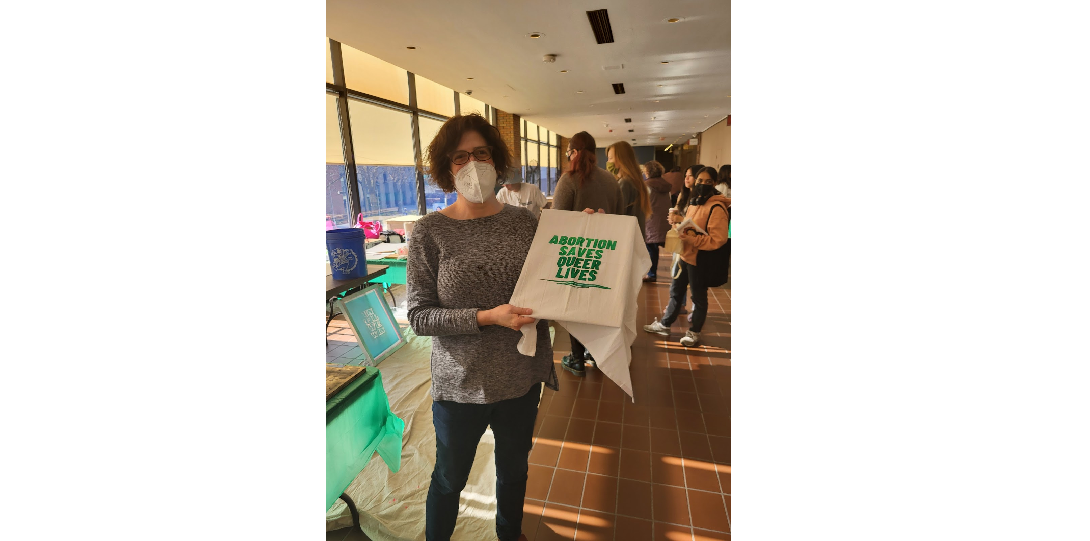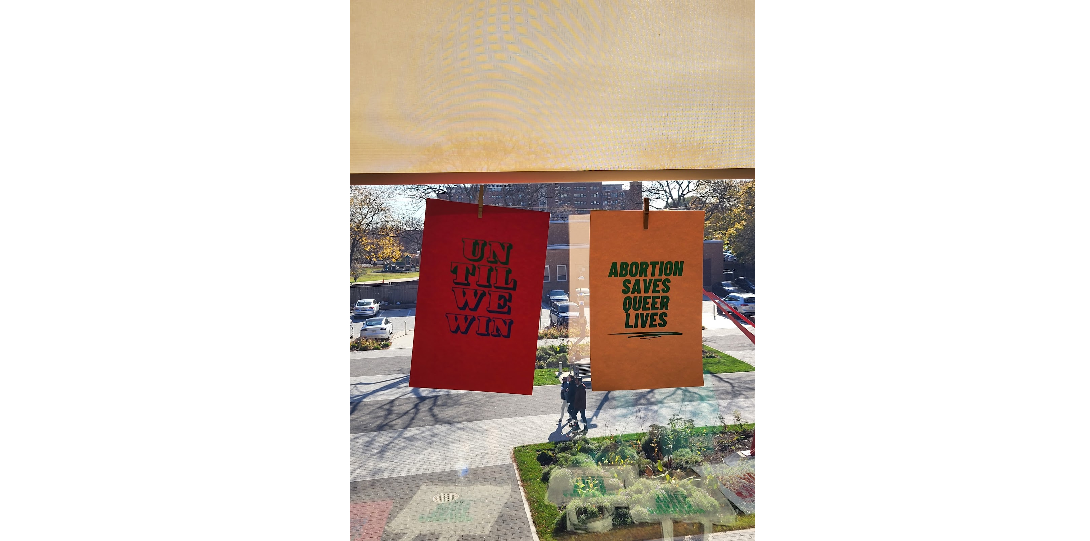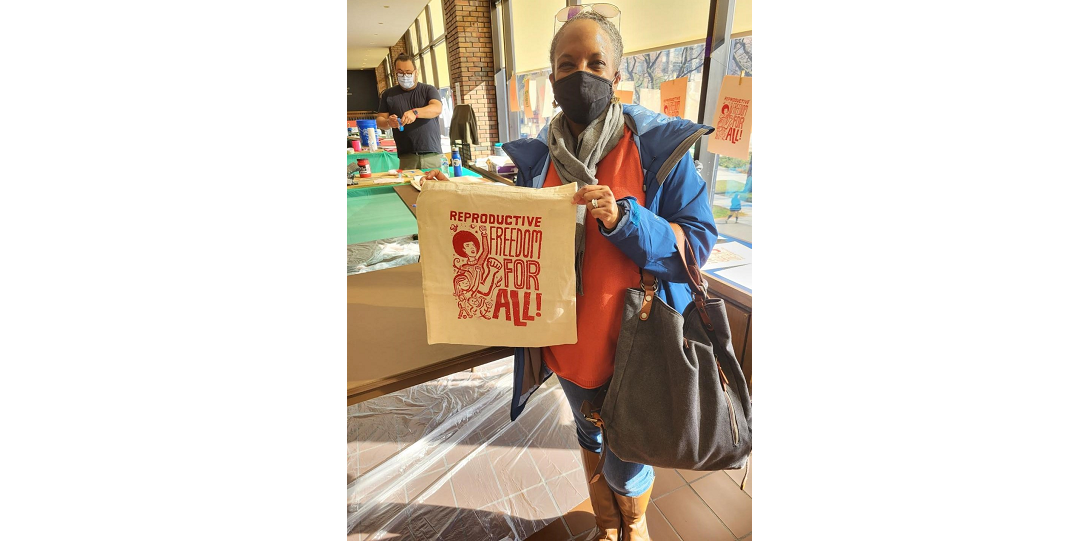Reproductive Justice Coalition Brings the Fight to UIC
x
In the lead-up to the seismic June 24, 2022 Supreme Court Dobbs vs. Jackson Women’s Health Organization decision, individuals and institutions across the country mobilized to defend reproductive rights. At UIC, the Reproductive Justice Coalition–a cross-campus coalition of faculty, staff and students–began organizing in April 2022.
With members from the College of Liberal Arts and Sciences (LAS), the College of Medicine (COM), the Women’s Leadership and Resource Center (WLRC), the Office of Diversity, Equity and Engagement, the School of Public Health (SPH), UIC Law, the College of Nursing and the College of Pharmacy, the Reproductive Justice Coalition is working to ensure that reproductive justice is central to the mission of UIC, UI Health and the entire U of I system.
The coalition formed from conversations around how UIC–the city’s only public research university with an affiliated medical center–currently approaches abortion care and reproductive justice, and what more could be done in those capacities.
Coalition members shared information on the vast differences in services across campus including the affordable self-funded student health benefit program Campus Care that covers abortion services, the UI Health clinics that provide options for medical abortions and surgical care and Mile Square, the largest Federally Qualified Health Center (FQHC) in the state and based at UI Health, where abortion care is inaccessible to its patients.
Because of the Hyde Amendment–a federal restriction on abortion funding–FQHCs nationally struggle to integrate abortion care. In some other states, however, FQHCs have created on site abortion access.
Jennifer Brier, PhD, director and professor in the UIC Departments of Gender and Women’s Studies and History, and Natalie Bennett, PhD, director of the WLRC, spearheaded the effort to develop the coalition on UIC’s east campus. They were guided by Black feminists’ definition of reproductive justice as the human right to maintain personal bodily autonomy, have children, not have children and parent the children we have in safe and sustainable communities.
They reached out to counterparts across disciplines and colleges to begin determining what the university needed to do to meet the current and projected needs of people who were turning to the UI Health system for reproductive healthcare. This included accommodating an influx of pregnant people seeking abortion care from states that have bans in place.
“The Reproductive Justice Coalition is one of the most vibrant cross-campus collaborations I have been a part of,” said Brier. “As feminist scholars who have long been concerned with structural inequities in access and experiences of healthcare for women–particularly women of color–as well as how racism and misogyny cause harm that often goes unnamed and unexamined, we knew we needed to bring more people into the conversation.”
The coalition held their Reproductive Justice Printmaking Project in November 2022 and have facilitated successful fundraising campaigns to support people seeking abortion care at UI Health as well as care-related housing. They have also supported student organizing to have more access to emergency contraception on campus.
Despite some institutional reticence, it is clear that there is strong support on the ground for the coalition’s missions and goals of envisioning a future where UIC is a model for all public universities in states where abortion is legal to listen to and work with people seeking care to realize reproductive justice.
“It has been a tremendous learning experience for me; to be able to be in conversation with folks across the various units, to have dedicated time and space to talk about and strategize around reproductive justice issues and how we can bring about change within the institution,” Bennett states. “This kind of feminist work is tremendously energizing and makes me hopeful about what we can do when we come together.”



